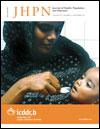From Cholera to Burns: A Role for Oral Rehydration Therapy
DOI:
https://doi.org/10.3329/jhpn.v29i6.9902Keywords:
Burns, Cholera, Diarrhoea, Hydration, Oral rehydration therapy, Prospective studies, Rehydration, Shock, USAAbstract
According to the practice guidelines of the American Burn Association on burn shock resuscitation, intravenous (IV) fluid therapy is the standard of care for the replacement of fluid and electrolyte losses in burn injury of ≥20% of the total body surface area. However, in mass burn casualties, IV fluid resuscitation may be delayed or unavailable. Oral rehydration therapy (ORT), which has been shown to be highly effective in the treatment of dehydration in epidemics of cholera, could be an alternate way to replace fluid losses in burns. A prospective case series of three patients was carried out as an initial step to establish whether oral CeralyteR90 could replace fluid losses requiring IV fluid therapy in thermal injury. The requirement of the continuing IV fluid therapy was reduced by an average of 58% in the first 24 hours after the injury (range 37-78%). ORT may be a feasible alternative to IV fluid therapy in the resuscitation of burns. It could also potentially save many lives in mass casualty situations or in resource-poor settings where IV fluid therapy is not immediately available. Further studies are needed to assess the efficacy of this treatment and to determine whether the present formulations of ORT for cholera need modification.
DOI: http://dx.doi.org/10.3329/jhpn.v29i6.9902
JHPN 2011; 29(6): 648-651
Downloads
322
247

